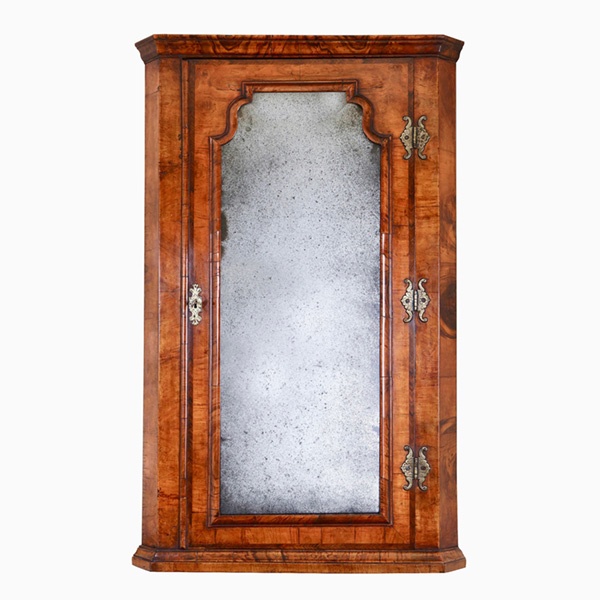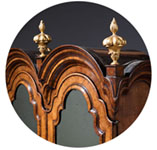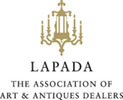18th Century George III Mahogany Quarter Striking Automation Bracket Clock by Stephen Rimbault
Sold
Request Information
Follow Us
18th Century George III Mahogany Quarter Striking Automation Bracket Clock by Stephen Rimbault
By Stephen Rimbault
The impressive mahogany case has a bell top and is surmounted by four pineapple finials on the corners and an additional finial to the centre. There are carrying handles to each side as well as circular silk-backed pierced brass sound frets. The case is glazed on all sides so that the complex movement is almost entirely visible. It rests on four brass ogee bracket feet and brass mouldings to both the top and base.
The extremely unusual partly painted shaped brass dial has a silvered Roman chapter ring with a recessed signature plaque, Stpn Rimbault London, and a date aperture in the matted centre. In the corners are fine pierced gilt brass spandrels. The time is indicated by a pair of very fine pierced blued-steel hands on the Roman chapter ring with Arabic five-minute and minute divisions.
The special, extremely rare and charming feature of the clock, is that above the dial there is a painted automaton depicting four eighteenth-century dress musicians, one playing the harpsichord, two other string instruments and a conductor. The hand of the harpsichord player, the bows of the string instruments players and the conductor’s baton are constantly moving with the going train. Fabulous!
The triple gut-fusee spring-driven eight-day movement has a going train with its original verge escapement and short pendulum with knife-edge suspension. The quarters are chimed on a nest of eight bells with eight hammers, on the hour followed by the hour on an additional bell. In addition, the striking can be repeated at will by pulling a cord to the side. The backplate is elaborately engraved around the maker’s signature Stpn Rimbault London.
Note on the maker
As his name suggests Stephen Rimbault was of Huguenot descent. He specialised in musical and/or automaton clocks in the second and third quarters of the eighteenth century. There is a most impressive clock by his hand in the Ashmolean Museum in Oxford. His brother Paul was also a clockmaker, of whom we also have a clock in our collection, albeit of a much more moderate style.
Condition
Good. Wear consistent with age and use.
Dimensions
Height: 21.66 in. (55 cm)
Width: 11.42 in. (29 cm)
Depth: 7.68 in. (19.5 cm)
Literature
Brian Loomes, Watchmakers and Clockmakers of the World, London, 2006, p. 656.
PREVIOUSLY SOLD
No Results Found
The page you requested could not be found. Try refining your search, or use the navigation above to locate the post.
No Results Found
The page you requested could not be found. Try refining your search, or use the navigation above to locate the post.
YOU MAY ALSO LIKE

Queen Anne Walnut Corner Cupboard with Bevelled Mirror Plate
A truly remarkable find in original condition. To the door a shaped soft bevelled mirror plate is framed by a cross-grain molding of typical queen Anne design which is further cross-banded, feather-banded and edged to the opening with a single de-molding.

Queen Anne Walnut Corner Cupboard with Bevelled Mirror Plate
A truly remarkable find in original condition. To the door a shaped soft bevelled mirror plate is framed by a cross-grain molding of typical queen Anne design which is further cross-banded, feather-banded and edged to the opening with a single de-molding.










